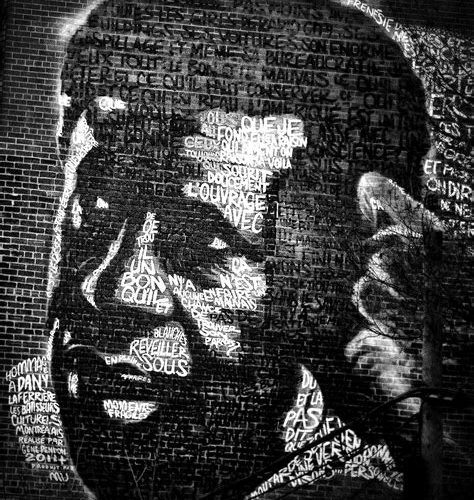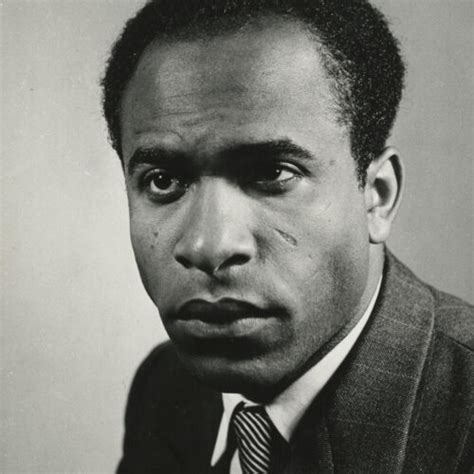Black Skin, White Masks is an autoethnography, written by Frantz Fanon in 1952. Fanon shares his own experience while relating these experiences to a historical critique of racism and colonization.
fanon
Violence in the International Context by Frantz Fanon (1961)
1946-1989, Black, Colonized, Date, Defining the Enemy, Imperialism, Subjectives of Refusal, The Bourgeoisie, White SupremacyThis PDF is an excerpt from The Wretched of the Earth, a 1961 book by the psychiatrist Frantz Fanon, a revolutionary theorist of colonialism and race. This book discusses the dehumanizaing effect of colonialism and the implications of a social movement for decolonization, especially focusing on the role of violence.
Spontaneity: Its Strength and Weakness by Frantz Fanon (1961)
1946-1989, Black, Colonized, Date, Defining the Enemy, History/Theory, Imperialism, Subjectives of Refusal, Theory, White SupremacyThis PDF is an excerpt from The Wretched of the Earth, a 1961 book by the psychiatrist Frantz Fanon, a revolutionary theorist of colonialism and race. This book discusses the dehumanizaing effect of colonialism and the implications of a social movement for decolonization, especially focusing on the role of violence.
The Pitfalls of National Consciousness by Frantz Fanon (1961)
1946-1989, Colonized, Date, History/Theory, Subjectives of Refusal, TheoryThis PDF is an excerpt from The Wretched of the Earth, a 1961 book by the psychiatrist Frantz Fanon, a revolutionary theorist of colonialism and race. This book discusses the dehumanizaing effect of colonialism and the implications of a social movement for decolonization, especially focusing on the role of violence.
On National Culture by Frantz Fanon (1961)
1946-1989, Black, Colonized, Date, Defining the Enemy, Imperialism, Subjectives of Refusal, The BourgeoisieThis PDF is an excerpt from The Wretched of the Earth, a 1961 book by the psychiatrist Frantz Fanon, a revolutionary theorist of colonialism and race. This book discusses the dehumanizaing effect of colonialism and the implications of a social movement for decolonization, especially focusing on the role of violence.
Reciprocal Bases of National Culture and the Fight for Freedom by Frantz Fanon (1961)
1946-1989, Black, Colonized, Date, Defining the Enemy, Imperialism, Subjectives of Refusal, White SupremacyThis PDF is an excerpt from The Wretched of the Earth, a 1961 book by the psychiatrist Frantz Fanon, a revolutionary theorist of colonialism and race. This book discusses the dehumanizaing effect of colonialism and the implications of a social movement for decolonization, especially focusing on the role of violence.
Frantz Fanon’s Speech at the Second Congress of Black African Writers (1959)
1946-1989, Black, Colonized, Date, Subjectives of RefusalIn this speech, Frantz Fanon discusses the effects that colonization has on the culture of those colonized. Additionally, Fanon explores the connections between liberation and culture.
“The nation is not only the condition of culture, its fruitfulness, its continuous renewal, and its deepening. It is also a necessity. It is the fight for national existence which sets culture moving and opens to it the doors of creation. Later on it is the nation which will ensure the conditions and framework necessary to culture.”
The Wretched of the Earth – Conclusion (1961)
1946-1989, Black, Colonized, Consciousness Raising, Date, History/Theory, Subjectives of Refusal, Tactics of DisruptionFrantz Fanon – who was born in the French colony Martinique – extensively wrote about decolonization. According to Fanon, decolonization is always a violent process. The violence involved in decolonization for Fanon is a cleansing process for the colonized and violence is necessary for complete liberation. This conclusion of The Wretched of the Earth is a call to action for decolonized African nations. Fanon warns against European and Western thought. Instead, he advocates for the creation of a new man, a new consciousness, and a new way of thinking.
So, comrades, let us not pay tribute to Europe by creating states, institutions and societies which draw their inspiration from her. Humanity is waiting for something other from us than such an imitation, which would be almost an obscene caricature… if we want humanity to advance a step father, if we want to bring it up to a different level than that which Europe has shown it, then we must invent and make new discoveries.







